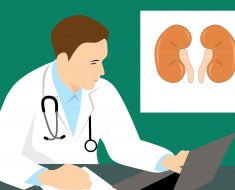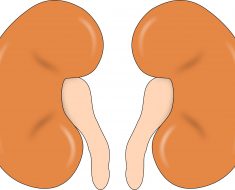High blood pressure: Doctor explains benefits of hibiscus tea
We use your sign-up to provide content in ways you’ve consented to and to improve our understanding of you. This may include adverts from us and 3rd parties based on our understanding. You can unsubscribe at any time. More info
High blood pressure means your blood pressure is consistently too high and means that your heart has to work harder to pump blood around your body. This can put an extra strain on your heart and blood vessels, which subsequently raises your risk of having a heart attack. Severely elevated blood pressure is referred to as a hypertensive crisis, and there are three symptoms to look out for.
Signs and symptoms of a hypertensive crisis that may be life-threatening may include either a severe chest pain, severe headache, accompanied by confusion and blurred vision or nausea and vomiting.
Health platform Ada explains: “Sometimes, people with essential hypertension may experience headaches, dizziness and blurred vision, but these symptoms are unlikely to occur until blood pressure reaches a very high level.”
According to Ada, some people also report that their heartbeat seems louder than usual and feels as if it is inside the ear.
“This may be more prominent the higher the blood pressure is,” explains the health platform.

In one study the prevalence of a hypertensive emergency was evaluated in an emergency department during 12 months of observation.
The most frequent signs observed were headache, epistaxis (nosebleeds), faintness, and psychomotor agitation.
Psychomotor refers to a wide range of actions involving physical movement related to conscious cognitive processing.
In most cases, however, high blood pressure rarely produces noticeable symptoms.
“So, the only way to find out if you have it been to get your blood pressure checked,” explains the NHS.
Causes of a hypertensive crisis can include:
- Forgetting to take your blood pressure medication
- Stroke
- Heart attack
- Heart failure
- Kidney failure
- Rupture of your body’s main artery (aorta)
- Interaction between medications
- Convulsions during pregnancy (eclampsia).

A new study found that maintaining normal blood pressure over long term is the key to a healthy heart.
The study, published in the Chinese Medical Journal noted how hypertension was a factor in over 2.5 million deaths in China alone with 95.7 percent due to cardiovascular disease (CVD).
In this paper, Dr Jing Liu, expert in the epidemiology of cardiovascular diseases at the Beijing Institute of Heart, Lung, and Blood Vessel Diseases, along with a team of researchers, explored exactly how much hypertension puts a person at significant risk of CVD.
Dr Liu said: “Our findings show that long-term exposure to high blood pressure may increase your risk of cardiovascular disease, although your current blood pressure level is lower than the diagnostic criterion of hypertension.
“For example, a person with current blood pressure level of 120/70 mmHg, which is within the normal range, could still be at a higher risk of contracting a cardiovascular disease in the future if his/her blood pressure level used to be higher than 130/80 mmHg for a long time, say years, in the past.”
The study underscores the importance of starting blood pressure management early.
Lifestyle changes to keep blood pressure in check, coupled with regular monitoring can go a long way, added Dr Liu.
“In addition, waiting to medicate until the blood pressure levels have become chronically high is not wise.”
Source: Read Full Article





